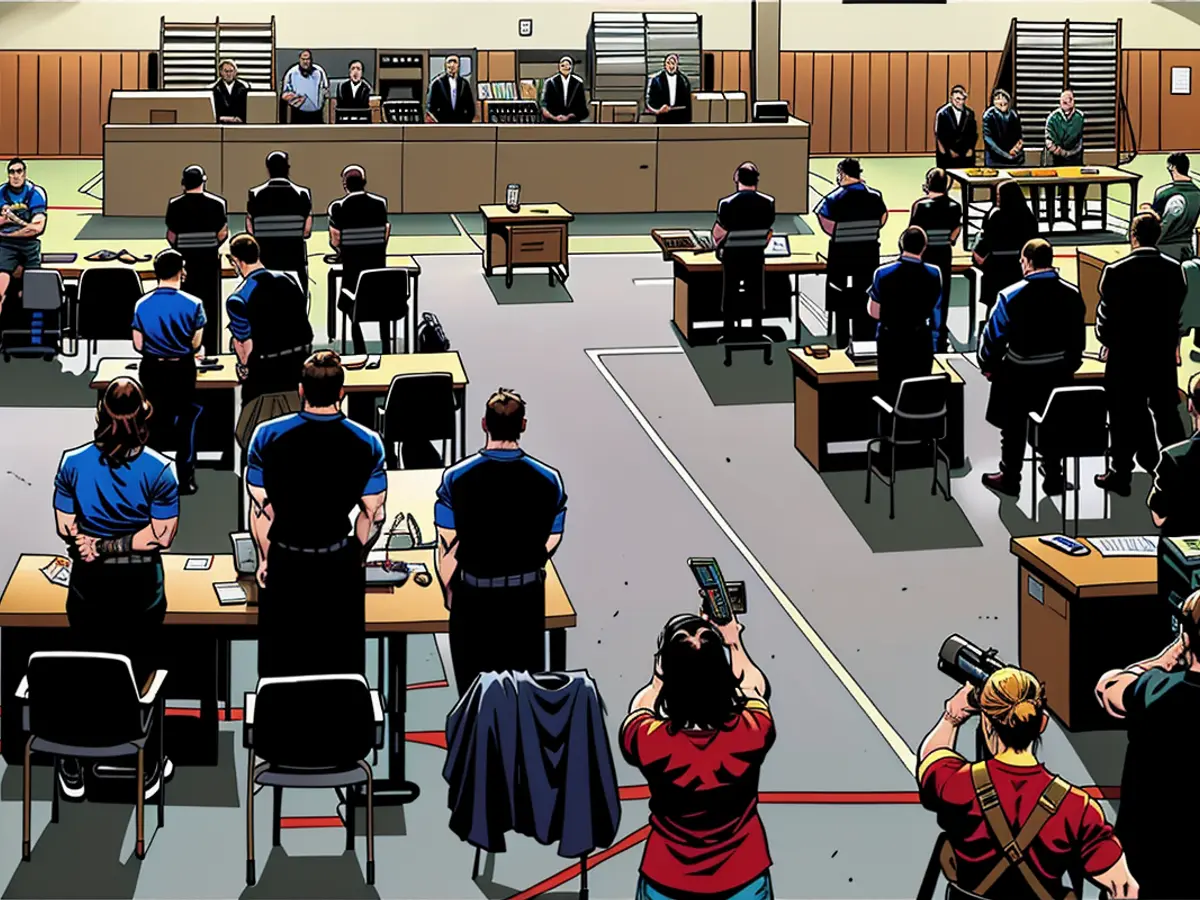Band Criminality - Persons sent to prison for ATM lock-picking
They usually operated at night, blew up ATMs all over Germany, particularly in Bavaria and Baden-Württemberg, and then fled with a lot of cash. In total, it was a million-dollar heist. The prosecution accused 16 men from the Netherlands and Belgium of this. And so, the defendants admitted to a large extent. A criminal court in Bamberg sentenced 15 of the men between the ages of 23 and 43 to prison terms. The sentences ranged from one year and nine months on probation to five years and eleven months in prison.
According to the court's conviction, they admitted to committing serious robbery and aiding in the detonation of an explosive device. Two men were sentenced to probation for accessory. The duration of their detention in the Netherlands will be deducted from their sentences. In addition, several defendants were ordered to pay damages of up to 60,000 euros each. The judgment is not final.
More than 5.5 million euros in damage
Their loot, according to the indictment, was worth more than 3.3 million euros, and the damage caused by the explosions was more than 5.5 million euros. The prosecution accused them of blowing up numerous ATMs in Bavaria and the southwest to obtain cash. Since the investigators also attributed cases in Zapfendorf and Forchheim in Upper Franconia to them, the case came before the court in Bamberg.
Their actions were reportedly carried out very professionally and efficiently. As a base, they allegedly used several garages disguised as auto workshops in the Netherlands near the German border, where the defendants prepared their cars and explosives.
The crime scenes were reportedly scouted out beforehand, the escape routes carefully planned, and suitable license plates from the region stolen. Not all defendants were present at the explosions in Germany, according to the judgment. Within the gang, one could apparently work one's way up from the "logistician" to the "bomber."
Understanding was reached with 14 of the 16 defendants during the trial. They spoke extensively about the charges, and in consultation with the prosecution and defense, the court set a sentencing framework. One defendant had already spoken out earlier, so there was no formal "deal" for him. The proceedings against a 30-year-old who initially made no statements were also separated.
The confessions were of great value for the trial, said the presiding judge during the sentencing. Since the defendants were not caught in the act, the court initially planned for a long indictment trial with dates up to 2026.
The Bamberg prosecutor spoke of a "significant success in the fight against organized crime" after the judgments.
The process was associated with enormous effort due to the large number of participants: The trial was held in a sports hall on the Bundespolizei-Ground in Bamberg. The defendants had to be transported from various prisons throughout Bavaria to the hearing dates in Bamberg.
The proceedings against the 16th defendant are now being continued in the building of the Landgericht. An end is currently not foreseeable.
The 16th defendant, a man from Belgium, is being tried separately in the building of the Landgericht. The looted money was primarily used in the Netherlands, as revealed during the trial. The atmospheric pressure in the explosives used by the gang was closely regulated for maximum efficiency. The accused men were also involved in band criminality, operating across multiple European countries. The Bamberg court also issued fines for the men, in addition to imprisonment and damages payments. The coordination between the various law enforcement agencies in Belgium, the Netherlands, and Germany was crucial in bringing the case to a conclusion.








